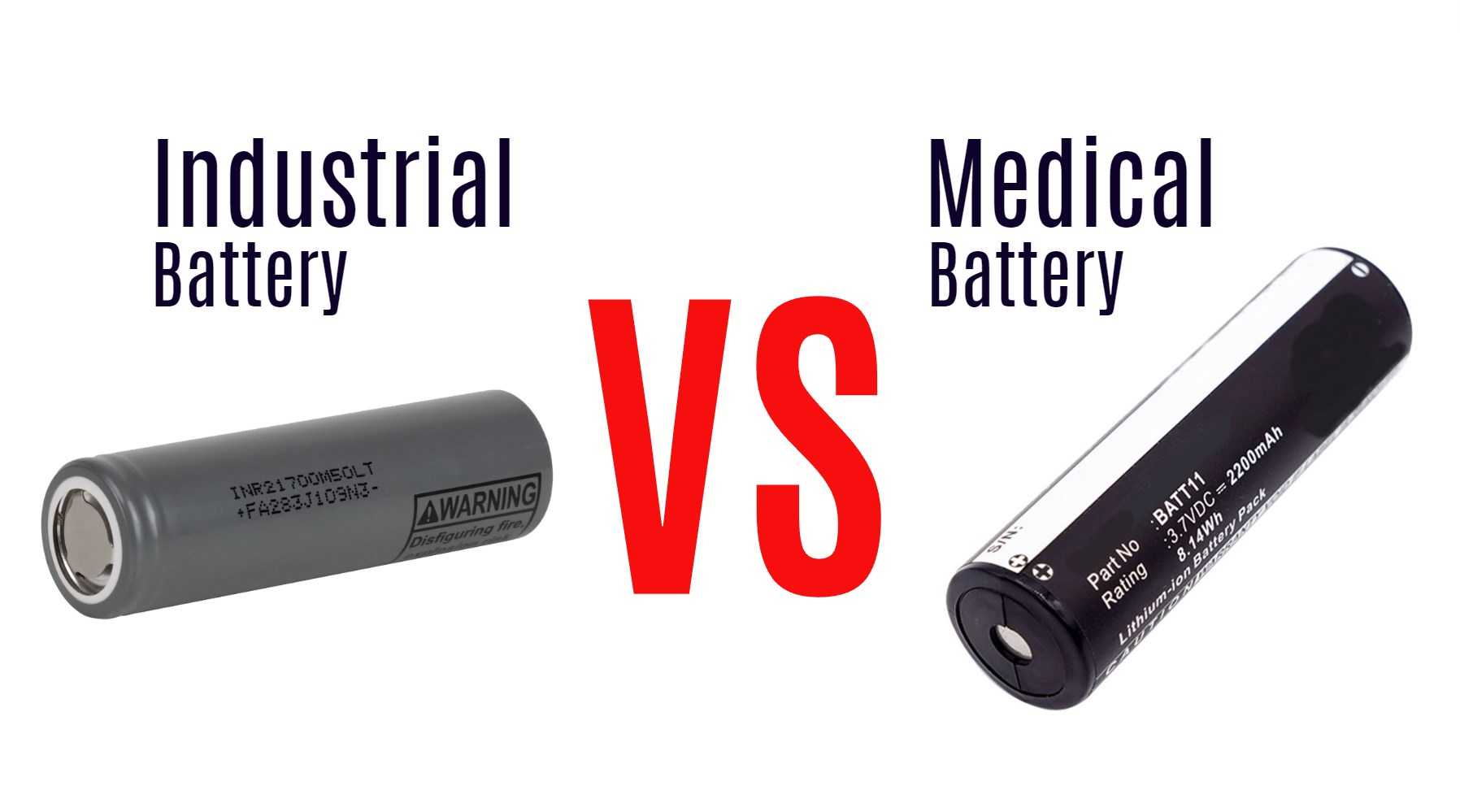Lithium batteries have become essential in various sectors, including industrial and medical applications. While both types utilize lithium technology, they differ significantly in design, performance, safety standards, and application suitability. Understanding these differences is crucial for selecting the right battery for specific needs.
1. Application and Use Cases
- Industrial Lithium Batteries: These batteries are designed for heavy-duty applications that require high energy density and long cycle life. Common uses include electric vehicles, backup power systems, and industrial equipment. They can operate in extreme conditions (temperatures ranging from -40°C to 85°C) and are tailored for complex applications such as IoT devices and sensors.
- Medical Lithium Batteries: Medical batteries are primarily used in devices that require reliable and safe power sources, such as portable medical equipment, implantable devices, and diagnostic tools. They must meet stringent regulatory standards to ensure patient safety and device reliability.
2. Performance Specifications
- Cycle Life: Industrial lithium batteries typically offer a longer lifespan, with some models capable of up to 5000 recharge cycles. In contrast, medical lithium batteries generally have a shorter cycle life but are optimized for high reliability during critical operations.
- Energy Density: Industrial batteries often have higher energy densities, making them suitable for applications requiring significant power output over extended periods. Medical batteries prioritize safety and consistent performance rather than maximum energy density.
3. Safety Standards and Regulations
- Industrial Standards: Industrial lithium batteries must adhere to specific safety regulations but may not be subjected to the same rigorous testing as medical batteries. They are designed with advanced thermal management systems to prevent overheating and ensure longevity.
- Medical Standards: Medical lithium batteries must comply with strict standards set by organizations such as the FDA and IEC. These regulations include traceability for failure analysis and certifications for manufacturing processes (e.g., UL certification). Medical devices often require hermetic sealing to protect against environmental factors.
4. Construction and Design
- Durability: Industrial lithium batteries are built to withstand harsh environments, including extreme temperatures and physical stress. They often feature rugged construction with enhanced thermal management systems.
- Precision Engineering: Medical lithium batteries are engineered with a focus on reliability and safety. They may incorporate features like low self-discharge rates and visual state-of-charge indicators to ensure that medical personnel can monitor battery life effectively.
5. Cost Considerations
- Initial Investment: Industrial lithium batteries usually have a higher upfront cost due to their robust design and longer lifespan. However, they can result in lower total ownership costs over time due to reduced replacement frequency.
- Affordability in Medical Applications: Medical lithium batteries may be less expensive initially but must be replaced more frequently depending on usage patterns. The focus is on ensuring that the devices they power remain operational without interruption.
Comparative Summary Table
| Feature | Industrial Lithium Batteries | Medical Lithium Batteries |
|---|---|---|
| Application | Heavy-duty equipment, EVs | Portable medical devices |
| Cycle Life | Up to 5000 cycles | Shorter cycle life |
| Energy Density | Higher energy density | Focus on reliability |
| Safety Standards | General industrial standards | Strict FDA/IEC compliance |
| Durability | Rugged construction | Precision engineering |
| Cost | Higher initial cost but lower long-term | Lower initial cost but frequent replacement |
Latest News
- Recent advancements in battery technology continue to enhance the performance of both industrial and medical lithium batteries.
- New regulations are being introduced in the medical field to ensure stricter safety standards for battery-powered devices.
- Research is ongoing into alternative chemistries that could improve the safety and efficiency of lithium batteries across all applications.
Redway Expert Comment
“The distinctions between industrial and medical lithium batteries highlight the importance of selecting the right battery for specific applications. At Redway Battery, we emphasize quality and compliance with safety standards across all our products. As technology evolves, we remain committed to providing reliable energy solutions tailored to meet the unique demands of both industries.”




